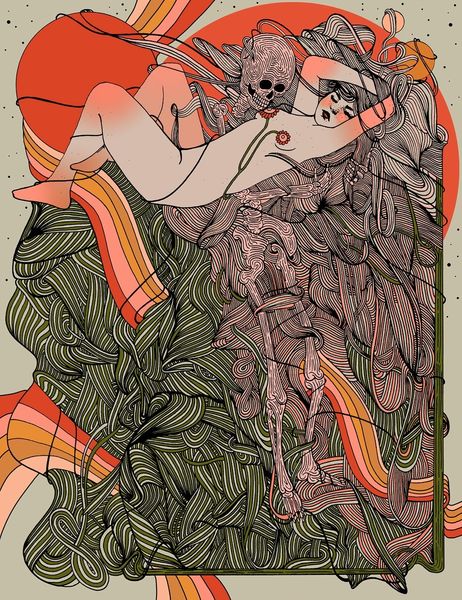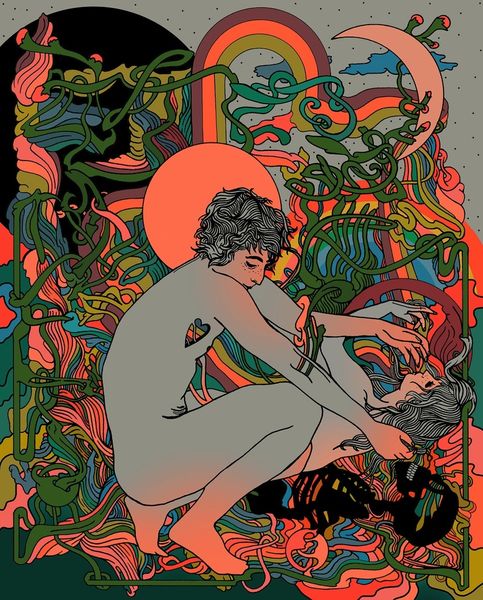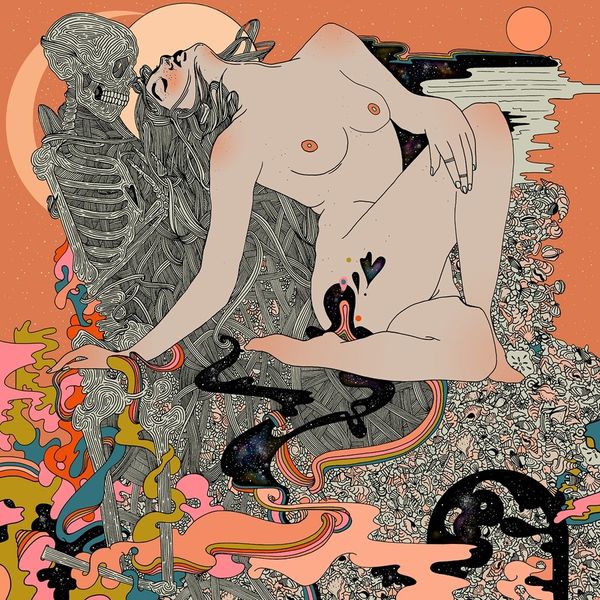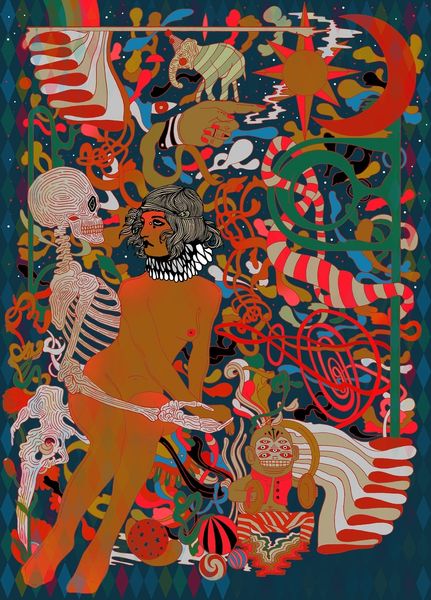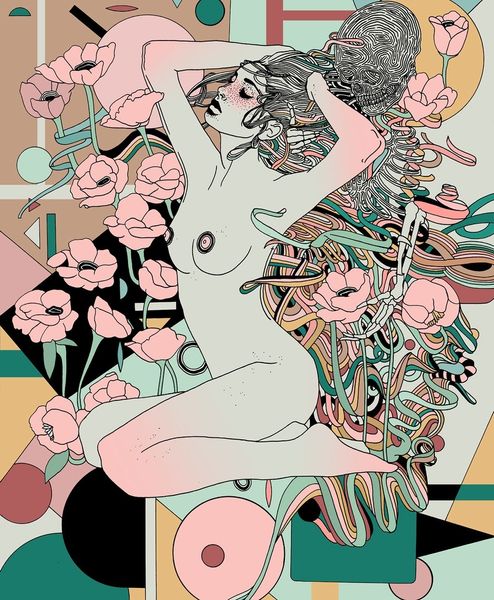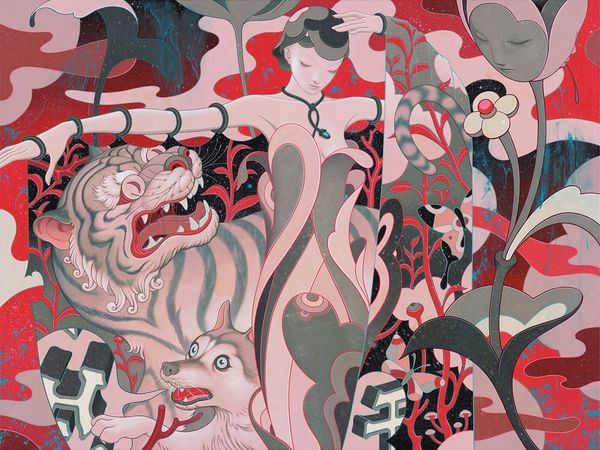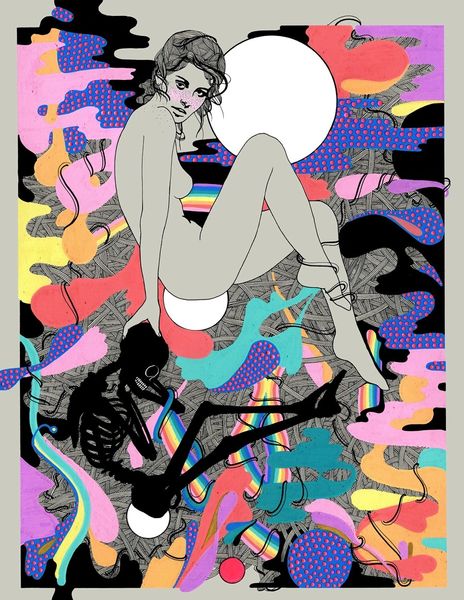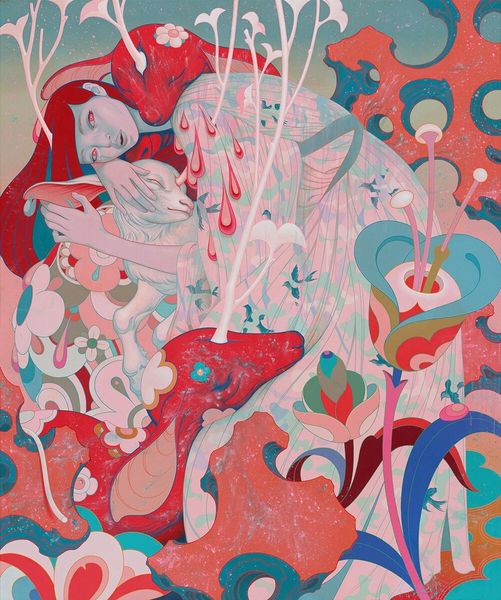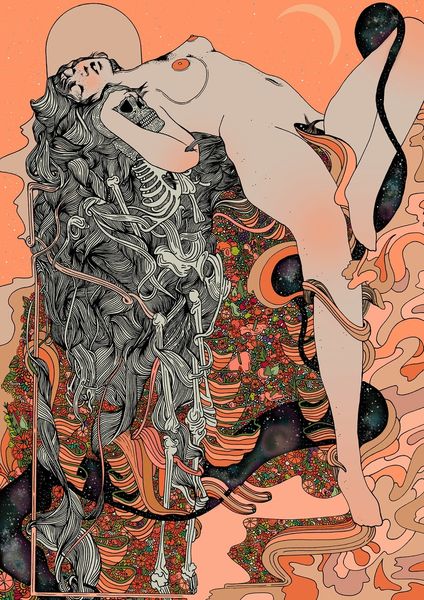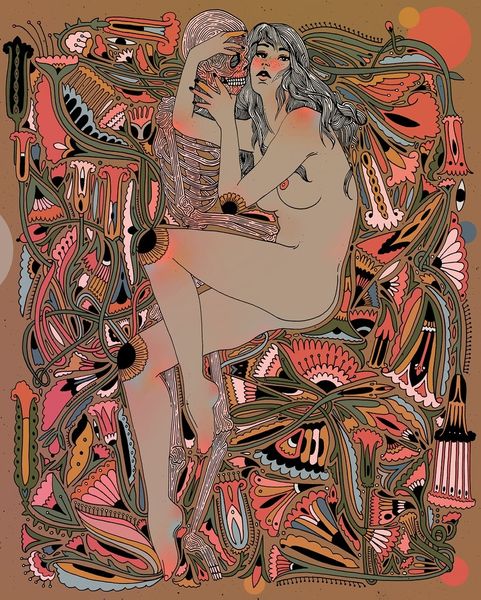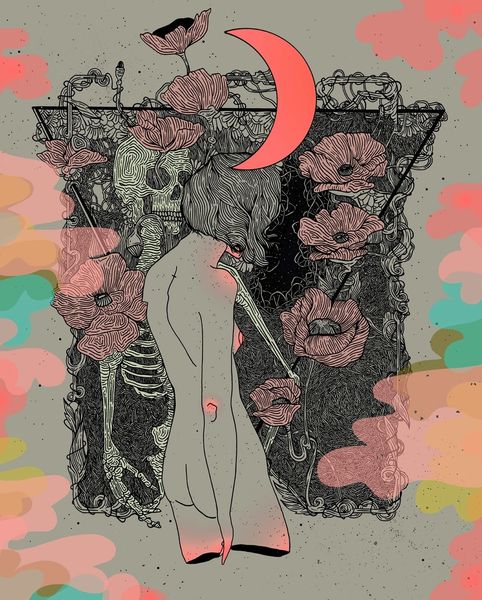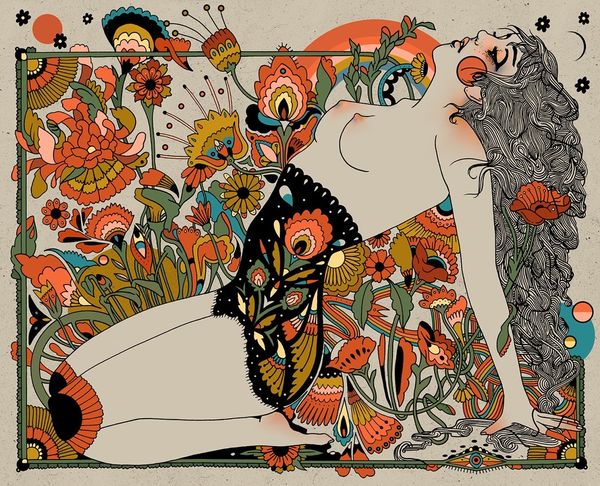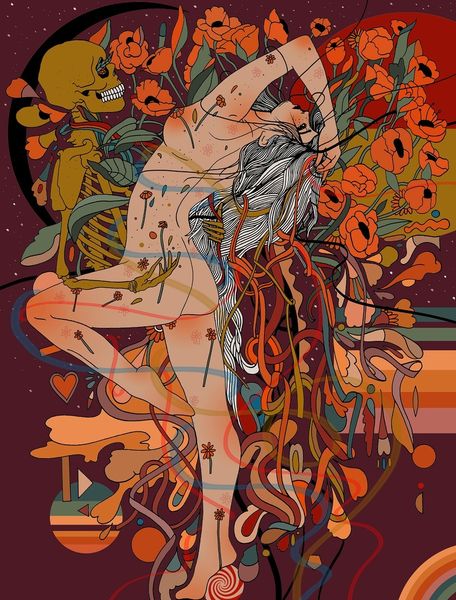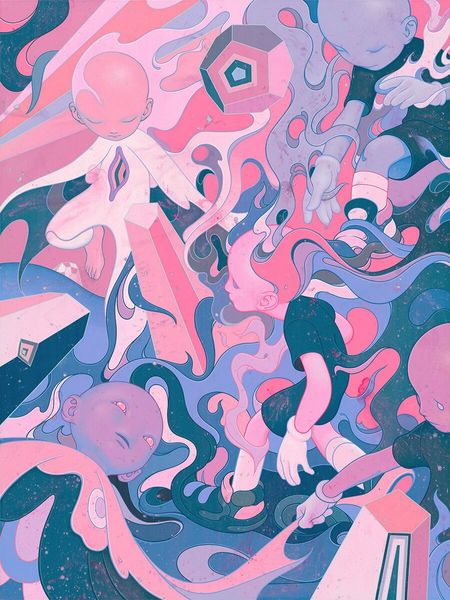
mixed-media, acrylic-paint
#
portrait
#
kaleidoscopic
#
mixed-media
#
cartoon like
#
pop art
#
fantasy-art
#
junji ito style
#
acrylic-paint
#
figuration
#
comic and comic book
#
day of the dead
#
comic
#
pop-art
#
symbolism
#
cartoon style
#
psychedelic
#
cartoon theme
#
modernism
#
motif
Copyright: Modern Artists: Artvee
Curator: Well, here we have an artwork whose sentiment is immediately striking. It’s titled "I don’t want it to be pretty—I want it to be real” by Cassidy Rae Marietta, achieved through mixed media and acrylic paint. What's your initial take? Editor: Disquieting, yet vibrant. The pastel colors almost trick you at first glance, suggesting a whimsical cartoon world, until you notice the skeleton figure and other details that unsettle. Curator: I think there's an intended discord. The figures blend vulnerability and the macabre, suggesting the artist may be grappling with presenting the self authentically in a world that often pressures us toward palatable “prettiness.” Editor: Absolutely. The Day of the Dead imagery, with its sugar skull-like face, speaks volumes. It’s a reminder that behind any facade lies our mortality. I’m intrigued by the moon as well, which usually signifies cycles of change. Is that perhaps referencing the cyclical nature of reinvention, persona, identity, etc? Curator: Yes, it could signify transformations or a shadow self emerging. Consider also the pop art influences, these kaleidoscopic forms perhaps highlight the multi-faceted nature of the human condition, or how we all contain multitudes. Even those diamond motifs, recurring throughout the frame... Editor: They're gem-like but somehow precarious, suspended. Are these representations of an unmined or unfaceted inner life perhaps? Even the floral motifs carry meaning – poppies for sleep or even oblivion, possibly hinting at a desire to escape? Curator: Interesting… the whole piece creates a tension between the bold stylistic flourishes—and the deeply intimate theme. I feel like the artist challenges the viewer to accept both the light and the dark aspects of selfhood, without the filter of wanting to appear "pretty" or acceptable. Editor: The skeletal figure is powerful, it dares the other reclining figures to see themselved fully, and to understand what comes after the performance of self. It demands authenticity, almost violently rejecting the notion of only presenting a sanitized version. Curator: That's it, isn't it? Stripping bare the illusion. The real and rawness triumphing over idealized perfection. Editor: In the end, I suppose this work isn’t just an aesthetic experience but an urgent call for genuineness. Art as revelation.
Comments
No comments
Be the first to comment and join the conversation on the ultimate creative platform.
